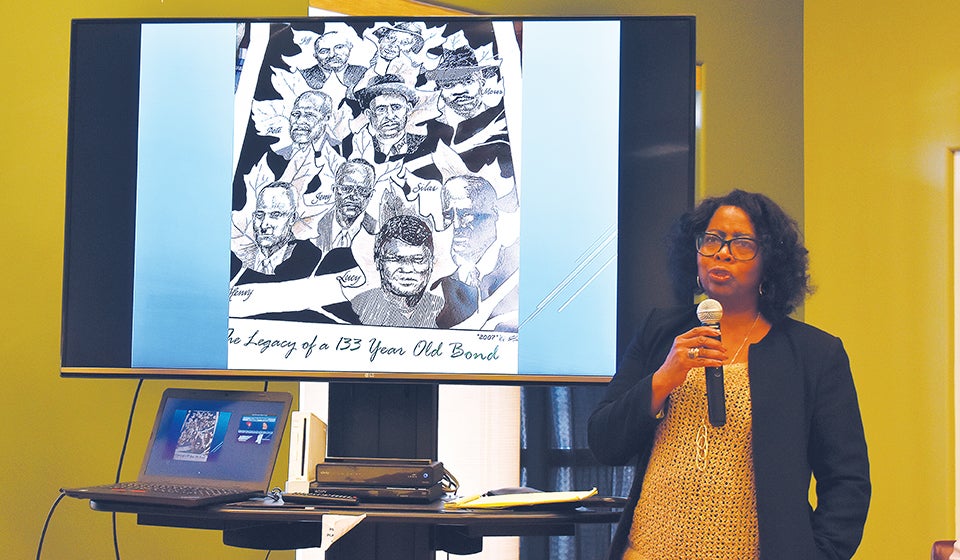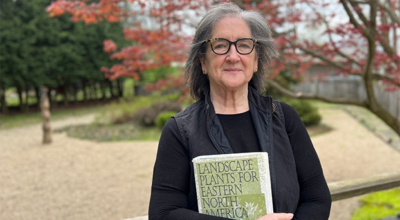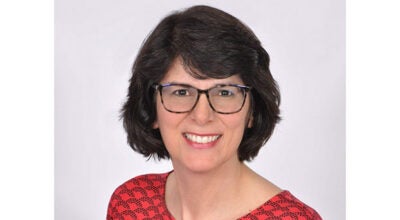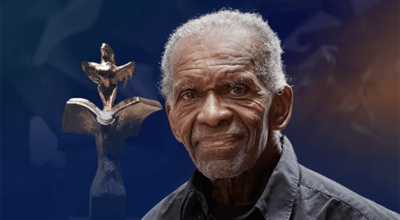African American leaders discuss history and hopes for the future during forum
Published 9:27 am Tuesday, February 26, 2019

- Jeanne Harris talked about her family history during a Black History Month forum at the Buchanan Area Senior Center.(Leader photo/KELSEY HAMMON)
BUCHANAN — When Bernice Patterson was growing up, she remembers being one of two African Americans in her AP classes at Buchanan High School.
“Trying to be gifted and black in Buchanan was not an easy thing,” Patterson said. “It’s not an easy thing to have to be the voice of a whole group of people when you can only actually be the voice for yourself.”
Patterson is first African American to graduate high school from Buchanan and become a doctor. On Sunday night, she shared her story with the more than 100 people who packed the Buchanan Area Senior Center to attend a Black History Month forum hosted by One Buchanan – a nonprofit with the emphasis on supporting diversity.
In addition to numerous speakers, people could also enjoy a buffet and view items from a Black History museum, cultivated by Marie Brown.
Buchanan’s history and its future have inevitably been shaped by the lives and legacy of numerous African Americans. During the forum, speakers talked about the past, today and their hope for continued progress on equality.
Patterson received her doctorate in 2013. She said growing up African American in Buchanan and her faith inspired her to pursue a career in psychology. Patterson wanted a job that would utilize her faith and passion for science, though she met some roadblocks at first. At Wheaton College, she found a school that would embrace her faith and help her on her career path, but the curriculum, she said, needed tweaking.
“The things I was taught were from a Eurocentric standpoint,” Patterson said. “I thought that theory sounds ok, but it is not going to work on my daddy. That’s not going to work on the people I grew up with. How does this become culturally relevant to the people I serve?”
After earning her doctorate, Patterson served as head psychologist for Pine Rest Christian Mental Health Services. She was the first and youngest African American manager in the organization. Today, Patterson runs her own business, Infinity Consultation Group, and speaks at churches and organizations about bridging the gap between mental health and the church.
“I want to encourage each and every one of you [especially youth], don’t let nobody tell you what you can’t do,” she said. “You can do it. Be encouraged.”
Industry impact
Clark Equipment Company, a manufacturing business that no longer exists, played a significant role in bringing African Americans north to Buchanan.
Ruth Writer, the host of the forum, described how the company drove school buses to the South to recruit African Americans and bring their families north. Among those who spoke Sunday, many of them had ancestors who were first brought to Buchanan by Clark. Because the families would be living in trailers, speaker Jeanne Harris said, recruiters sought families that had no more than two children and they would have to prove that they were healthy by taking a physical.
Speaker J.W. Jones, 89, was a foundry worker for Clark Equipment Company in 1950. In addition to his work with Clark Equipment Company, Jones recalled a time when African Americans were not allowed beyond Third Street, and they lived in shacks on the north side of the city.
“We kept to ourselves,” Jones said. “We didn’t go to the movies downtown.”
African American cafes, a school and a church proliferated on the north side of town.
“There were economic opportunities, but some of the social opportunities were not there,” Writer said. “So, they were created by the black community.”
Creating a better place for all
Barbara Morris, the first African American business owner in Buchanan, also spoke. Growing up, she would be turned away from retailers or hair salons because of the color of her skin. Determined, she decided to open up her own beauty salon, where she said no one would be turned away.
Morris became the owner of BryAnn’s Boutique in Buchanan, eventually moving her business to Niles and renaming it BryAnn’s Hair Design. For 34 years, she has continued her legacy to make people of all colors feel beautiful.
“I want to run a business where you welcome people and receive them, because of those instances I dealt with in Buchanan,” Morris said.
Marie Brown, the owner of the former Sentiments in Niles, also talked about her experience as an African American business owner.
JT Williams, a deacon for New Hope Missionary Baptist Church, talked about the role of the church in the African American community. Williams said the church plans to remain a part of the Buchanan community for many years to come. Kyra Clark talked about her mother being the first African American in Buchanan. Debbie Wakes and Harris also spoke and talked about their family history. Mike Busby also spoke and talked about the role of school and sports. Megan Goodrich spoke about growing up biracial in Buchanan.
As the forum came to a close, several audience members thanked One Buchanan for hosting the event and giving the community a space to talk about race.
Harris challenged city commissioners to get involved in discussions and encouraged residents to share the stories they heard so that they would not be lost.
“We are losing our black generation on the north side of Buchanan,” Harris said. “We need to preserve [it]. We have so many great stories from the north side of Buchanan.”






